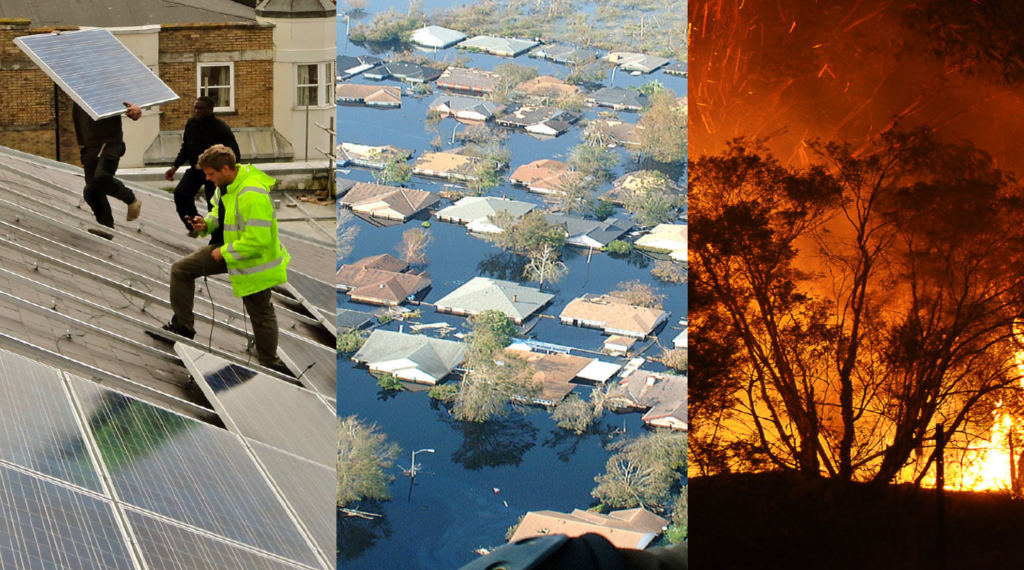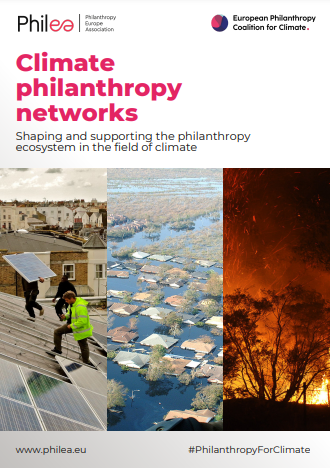#PhilanthropyForClimate: Be bold, be fast, think big

Climate change is the crisis of our time. Bending current emissions trajectories is the central task to achieve climate neutrality. This requires enhanced action and cooperation in and across all societal sectors on a global scale. Looking at recent developments in the philanthropy sector reinforces my hope that we can achieve this.
Philanthropy has a huge role to play in the transformation that is aimed at bringing about climate neutrality in a fair and equitable way. This potential, however, is markedly disconnected from the amount of philanthropic giving to climate which adds up to only about 2% globally But this figure may not capture the full picture as we are witnessing a very positive development in the philanthropic community, over the past two years in particular: An increasing number of foundations and philanthropy infrastructure organisations (PIOs) do recognise that the climate crisis is not the environmental problem it has been treated as over recent decades. Rather, this crisis is a systemic societal challenge that touches upon every aspect of human life and, thus, every philanthropic activity.
This prompted many organisations to reconsider their approaches and theories of change by starting to integrate a climate lens into their work. Funders started to draw more systematically the lines between their objectives and the necessity to consider how climate impacts their fields and their ability to achieve progress. It is becoming increasingly clear to many foundation leaders that “if we fail on climate, we fail on everything”. The recognition that every foundation can – and should – do something on climate goes beyond grantmaking to also include organisations’ operations and, very importantly, their asset management.
This has resulted in multiple commitments from foundations and PIOs, with the addition of the International Philanthropy Commitment on Climate Change hosted by WINGS and the launch of an Italian philanthropy commitment by Assifero in 2021. Together with existing commitments in the UK, France, Spain and Canada, they are brought together under the umbrella of the #PhilanthropyForClimate movement. More than 500 organisations are already part of this movement, and most of these do not even consider themselves climate funders. This is encouraging – and something people working in the climate field for more than a decade, including myself, have been waiting and advocating for, with growing impatience and concern.
It is crucially important now to support, nurture and grow this development within and beyond the sector. PIOs of all kinds have a responsibility to do so, be they general networks and associations, issue-specific, or advisory. This mapping shows the growing diversity and number of networks that have embraced this mission. It is important for them to coordinate and collaborate – the European Philanthropy Coalition for Climate (EPCC) is the platform for doing so. The EPCC’s added value is to empower PIOs of all kinds to drive climate action in their work, organise peer exchange and thereby constantly improve the infrastructure to make the #PhilanthropyForClimate movement bigger and even more effective.
We need to harness the power of networks because one thing is very clear: We can only win together! We must cooperate; share insights and strategies; and pool our resources to make this movement much more than the sum of the individual actions. Because we should not be mistaken: While all of these positive things happen, greenhouse gas emissions keep rising despite a small dip due to the coronavirus pandemic. We are not on track! And while we know that this transformation is feasible technologically and economically, there is still no plausible scenario for deep decarbonisation in terms of societal transformation dynamics.
With COP26 in Scotland in 2021 we have finally entered the decade of implementation. So, let’s do it. Let’s be bold, let’s be fast, let’s think big!
Thank you all so much for your continued commitment and energy in being part of the solution to this existential emergency.

Authors

